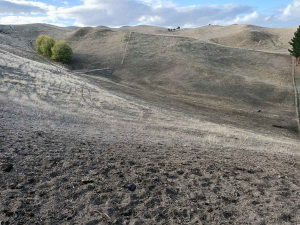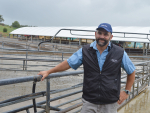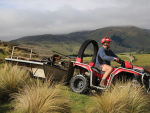The 'atmospheric river' of rain that swept down the country last week almost completely avoided one of the worst drought-affected regions in the country – coastal Taranaki.
Federated Farmers dairy chair for Taranaki, Sam Ebbett, told Dairy News that while it was reported that over 400mm of rain fell in the province, most came down in areas around and inland from Mt Taranaki. He farms around the township of Inglewood and got about 150mm of rain.
But further south in the areas that needed the rain most – places such as Hawera, Manaia and Pihama – got a paltry 20mm or 30mm of rain.
This was barely enough to wet the ground and start things growing, but it’s by no means a season saver,” he says.
The reason for coastal Taranaki missing out on the downpours that came in other regions is because of the role that Mt Taranaki plays in the climate. Ebbett says with the big weather system coming from the north, the mountain deflects the rain away from the coastal areas and into areas further inland. He says the prediction in the coming weeks is for a more westerly flow and this may bring rain to the coastal areas where the rain is needed most.
“Those farmers need about 40 or 50mm of rain for each of the next three weeks to get back on their feet,” he says.
Ebbett says he’s only farmed in the province for about 10 years but says the old-timers who have been around forever say this is the worst drought in 80 years.
He says many farmers have used up a lot of the supplements that were destined to get through winter; now more feed is being trucked into the region. Ebbett says even those farmers like himself who haven’t been affected by the drought are tight on feed. He says many farmers are drying their herds off early to protect the next season.
“A big focus for us at Feds is looking after contract milkers whose herds have had to be dried off. They are facing the prospect of having no income until August and that is very stressful and worrying for them,” he says.


















